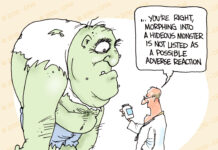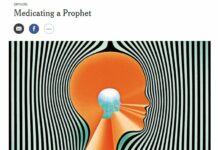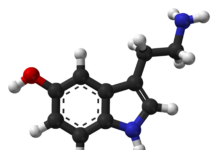Systematic Review Finds Antidepressants Double the Risk for Agitation and Violence in Healthy Volunteers
The Nordic Cochrane Center conducted a systematic review of existing research trials on antidepressants and found that the drugs doubled the risk of feelings...
Policies to Reduce Antipsychotic use Among Elderly are Failing
Research reveals that rates of antipsychotic prescribing to the elderly in the UK have not dropped despite national recommendations.
“Gretchen LeFever Watson: The Deadly Dangers of ADHD Drugs”
Gretchen LeFever Watson, a clinical psychologist, connects the US opioid crisis to the overdiagnosis of ADHD in a guest editorial for The Virginian Pilot....
Use of Antidepressants Linked to Diabetes
Selective serotonin reuptake inhibitors (such as Prozac and Zoloft) are the most commonly prescribed medication for depression. SSRIs have long been associated with an...
Clinical Trials Underreport Harms of Antidepressant Medications
A group of researchers recently found serious bias in the reporting of harm due to adverse events in antidepressant medication clinical trials. They report...
Why Social Isolation Leads to Inflammation
We are wired for community. If we disconnect, our bodies will call us back to the sense of human connection that we are wired for, using the unexpected language of inflammation.
iPad Use Before Surgery as Effective as Sedatives for Children
A group of French doctors presented a new study in the area of pediatric anesthesiology at this year’s World Congress of Anaesthesiologists in Hong...
“Veterans’ PTSD and Brain Injury Deserve Focused Research on New Treatments”
For STAT, Magali Haas reports on a research summit organized to improve the treatments available for PTSD. “If the goals are ambitious, the obstacles...
New Study Casts Doubt on Efficacy of Ketamine for Depression
A new study, published this month in the Journal of Affective Disorders, investigated the effectiveness of weekly intravenous ketamine injections as a treatment for...
“Medicating a Prophet”
In the New York Times Sunday Review, Irene Hurford, a psychiatrist, reflects on the ethics of forced treatment for psychosis. “As doctors,” she writes,...
The Failed Quest for Biomarkers in Psychiatry
A recent commentary by Ganesan Venkatasubramanian and Matcheri Keshavan notes that efforts to identify biomarkers in people diagnosed with psychiatric disorders have been overwhelmingly...
How Do Antidepressants Really ‘Work’?
A recent review, published in Neuroscience & Biobehavioral Reviews, challenges the dominant assumptions about the neurochemical and therapeutic effects of Selective Serotonin Reuptake Inhibitors...
Antidepressant Effects Thwarted by Stressful Environments
A new study, about to be published in the journal Brain, Behavior, and Immunity, investigates the role a stressful environment plays in antidepressant effectiveness....
Rejecting the “Medications for Schizophrenia” Narrative: A Survivor’s Response to Pies and Whitaker
As a psychiatric survivor who has personally experienced severe psychosis, my criticisms focus on the relative lack of attention to what psychiatric drugs actually are, and on the uncertain, contested nature of the supposed target of these drugs: “schizophrenia.” I will elaborate on each of these points with references, as well as highlighting alternative approaches to helping psychotic people.
German Psychologists Declare “the Drugs Don’t Work”
Jürgen Margraf and Silvia Schneider, both well-known psychologists at the University of Bochum in Germany, claim that psychotropic drugs are no solution to mental...
STOP or GO? Tapering Pregnant Women off of Antidepressants
A team in the Netherlands is currently investigating the effects of tapering off of antidepressants known as selective serotonin reuptake inhibitors (SSRIs) during pregnancy....
CDC Advises Nonopioid Treatments for Chronic Pain
Primary care clinicians and mental health providers face a particular set of challenges when treating individuals with chronic pain. These problems are compounded by...
The ADHD Drug Epidemic: Addiction, Abuse, and Death
A new analysis of FDA data, published on September 10th by the Milwaukee Journal Sentinel/MedPage Today, reveals the dangers of the common prescription of...
“Canadian Patients Fight Forced Electroshock”
"A retired nurse, a Harvard-educated musician and others sued British Columbia this week, claiming it forcibly subjects mental health patients to electroconvulsive therapy and...
Enough is Enough Series, #5 – The ADHD Fiction is Exposed. The French Have...
The time has come that the fictitious ADHD qualifies for my ‘Enough is Enough’ series. It’s time to stop addressing pharmaceutical psychiatry on its own terms: its fraudulent and corrupt 'science,' its spurious 'evidence base,' and its imaginary psychiatric ‘diseases.’ I’m done with this. The evidence is in. Let’s get real. Psychiatry has become a profession of drug pushers. As a psychiatrist I am beyond troubled. Let’s get real.
“Overprescribing of Drugs for Adult ADHD Causing ‘Trail of Misuse, Addiction and Death'”
An investigative report finds that the over-prescription of ADHD drugs is causing “a trail of misuse, addiction, and death.” “At morgues in Florida, a...
Review Calls for Critical look at Prescribing Antidepressant Drugs
The August issue of Psychotherapy and Psychosomatics published a review conducted by André F. Carvalho and colleagues regarding the literature around the long-term use...
Review Finds Link Between Recession and Mental Health Issues
A literature review published in BMC Public Health by researchers from Portugal and the Czech Republic summarizes results from 101 studies investigating the effect...
Meta-Analysis Finds Exercise Improves Cognition in Individuals with Schizophrenia
A new review, published in Schizophrenia Bulletin, examines the effects of exercise on cognition in individuals diagnosed with 'schizophrenia.' The results of the meta-analysis...
Confessions of a Trespasser
In a recently published commentary in Psychiatric Times, Ronald Pies and Joseph Pierre made this assertion: Only clinicians, with an expertise in assessing the research literature, should be weighing in on the topic of the efficacy of psychiatric drugs. They wrote their commentary shortly after I had published on madinamerica “The Case Against Antipsychotics,” and it was clear they had me in their crosshairs.





























